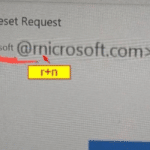Let's keep it real.
Most businesses think they're secure... until something goes wrong. That's where a comprehensive IT security audit steps in. It's not about ticking boxes or jumping through hoops. It's about figuring out what's working, what's not, and where the security vulnerabilities are before hackers do.
A proper cybersecurity audit is designed to assess an organisation's security posture and identify potential security weaknesses before they become security incidents.
And in 2025, with rapidly evolving cyber threats and technologies, evaluating your overall security has never been more critical.

Before we dive deeper, let's look at some eye-opening statistics about the current cybersecurity landscape:
While the overall percentage of affected businesses has slightly declined from 50% in 2024, the threat remains persistent, especially for larger organisations. These aren't just numbers; they represent real businesses facing real consequences.
A security audit is a comprehensive assessment of your IT systems and infrastructure. Various types of security audits will involve examining your organisation's security controls from internal and external perspectives. Regular audits involve a thorough inspection of network security, information security, and data security practices. Skilled auditors dig deep into how your network is set up, how access control systems are managed, what security controls are in place, whether regular security patches are applied, and how sensitive information is stored and protected.
It's not just about having security policies in place - it's about whether those policies actually work in practice and comply with regulatory requirements like GDPR. A thorough security audit will help assess an organisation's security against established security standards and identify critical systems and data that may be at risk.
Hackers aren't picky. They look for easy wins. You're on the list if your firewall is outdated or your staff are reusing weak passwords. We've seen phishing attacks land because employees didn't know what to look for. We've seen malware get in through an old laptop that hadn't been patched.
A security IT audit shines a light on the stuff that's easy to miss when you're focused on running a business.
The stakes are getting higher in 2025. The UK's cybersecurity regulatory landscape is rapidly evolving, with the introduction of the Cyber Security and Resilience (CSR) Bill in January 2025. This bill aims to:
The CSR Bill brings more digital service providers under regulatory oversight, including:
The Department for Science, Innovation and Technology (DSIT) and the National Cyber Security Centre (NCSC) will serve as primary enforcement authorities, with sector-specific regulators.
Compliance obligations now include evidence of:
And yes, non-compliance penalties exist. Information Commissioner's Office (ICO) Annual Data Protection Audit Report 2024-25.
Every organisation is different, but here's what a comprehensive security audit typically involves:
We start with a risk assessment and vulnerability assessment to identify where the most significant cyber threats are. Then we conduct specific security vulnerability checks across your systems, scanning for security weaknesses, from devices to cloud platforms. Security practices are evaluated against industry standards to ensure alignment with best practices.
A thorough audit will also examine your incident response plan and evaluate your organisation's cyber resilience. Our auditors will review your security policies to see if they make sense and if stakeholders actually follow them through security training. We assess physical security, network security, access to sensitive information, potential security risks in your information security systems, and whether your backup and disaster recovery plans would actually work in an emergency.
The audit report will help identify poor internal practices that could lead to security breaches or data breaches. If compliance audits matter to you—whether it's Cyber Essentials, ISO 27001, or PCI DSS, we'll let you know exactly where you stand in terms of security and compliance requirements, including those related to data protection.
Once a year is the bare minimum; if you've had a cyber incident, made significant changes, or you're scaling quickly, you'll want to check in more often. Some businesses choose ongoing monitoring, so there are no surprises.
We break it down further here: Silver Lining Cyber Security Management
The result of the audit isn't just a stack of paperwork. You'll get a clear, honest view of where your IT security stands. You'll know what needs fixing, what's working, and what to prioritise.
You'll receive a full report with a risk score and action plan, written in plain English. No fluff. Just the facts you need to make smart moves.
At Silver Lining, we work with all sorts of businesses from start-ups to established SMEs. We run audits that actually make a difference. We help clients spot vulnerabilities before they become problems, lock down their cloud platforms, secure internal networks, and train teams with phishing simulations, addressing the growing cyber threats identified by the NCSC.
We implement best practices aligned with the latest security standards and help you develop robust incident response plans to address potential security incidents quickly and effectively.
It's all done with clarity and speed. No jargon. No drama.
As we navigate this complex security landscape, businesses and auditors are facing several significant challenges:
The widespread adoption of artificial intelligence (AI) is transforming audit processes, automating routine tasks and enhancing risk management. However, AI also introduces new risks, such as AI-powered cyberattacks and challenges in ensuring responsible, ethical, and compliant AI use. Auditors must navigate the complexities of AI governance, data integrity, and regulatory requirements as AI becomes central to audit methodologies.
Cybersecurity remains a top business risk, with a rising number of sophisticated attacks, including ransomware and phishing, often powered by advanced tools and AI. Auditors face the challenge of evaluating the adequacy of cyber controls, ensuring robust incident response, and verifying the effectiveness of continuous monitoring and advanced threat detection capabilities, including firewall configurations.
The regulatory landscape is becoming more stringent, with new standards, such as the anticipated establishment of the Audit, Reporting and Governance Authority (ARGA), and updates to the Corporate Governance Code. Auditors must keep pace with evolving compliance requirements, including those related to cyber governance and reporting on material controls.
Attracting and retaining skilled audit professionals is a growing challenge. The shift towards technology-driven audits requires new competencies in data analytics, AI, and cybersecurity, while remote and hybrid work trends disrupt traditional hands-on training and mentorship models. Stakeholder engagement becomes crucial in this environment.
Effective IT audits depend on access to accurate, complete, and standardised data. Integrating AI and real-time bank connectivity heightens the need for robust data protection and governance, as auditors must ensure data integrity and compliance with privacy and security regulations.
As organisations increasingly rely on cloud services and third-party vendors, auditors must assess critical third parties' security and operational resilience. This includes evaluating cloud governance, supply chain vulnerabilities, and the effectiveness of controls across complex digital ecosystems.
Auditors are expected to ensure large-scale transformation programmes, operational resilience, and the secure-by-design implementation of new technologies. This requires a proactive approach to risk assessment and the ability to adapt audit plans to rapidly changing business environments.
Clients now expect more than compliance; they seek forward-looking insights, transparency in audit opinions, and tailored recommendations that support strategic decision-making. Auditors must balance these demands with the need to maintain independence and objectivity.
Yes. 100%. A cybersecurity audit shows you what you can't see on the surface. Conducting a cyber security audit will help mitigate risks before they become problems. Waiting until something breaks is expensive. It costs more than money- trust, time, and focus.
With 43% of UK businesses experiencing security breaches, and that number climbing dramatically for larger organisations, you can't afford to be in the dark about your security posture. A regular security audit today can help streamline the audit process in the future and build stronger security measures.
If you're serious about protecting your business and sensitive data from cyber risks, you can't afford to skip it. A security audit helps identify systems and processes that need improvement and strengthens your overall security stance.
What's the difference between a vulnerability scan and a full audit?
A vulnerability scan is automated. It checks for known issues and creates a vulnerability assessment report. An audit is a comprehensive assessment that is manual and much broader. It looks at how your systems and processes actually work in practice and examines your organisation's security team practices. Regular audits provide more profound insights than automated scans alone.
Will a security audit disrupt our work?
No. Our security team manages most of the audit scope in the background. If anything urgent arises during the audit process, we'll flag it immediately and work with key stakeholders to address it.
What if we "fail" the audit?
There's no such thing as failing. The security audit is designed to identify where your organisation's information security stands and what weaknesses need addressing. The goal is to objectively assess your organisation's security posture against industry standards and regulatory requirements.
How long does the audit process take?
It depends on your setup and the types of security audits required. Most comprehensive security audits take a few days from start to finish, but this depends on the scope and complexity of your network security infrastructure.
Do you help fix the security issues identified?
Yes. The audit helps identify problems, and then our team works with you to address them. We don't just tell you what's wrong. We help implement best practices and strengthen your security measures, including improving access control systems and data protection protocols.
How does the new CSR Bill affect my business?
If you're a digital service provider, managed service provider, or support essential services, you'll likely face new compliance requirements related to security and compliance standards. An audit can help prepare for these changes by assessing your current security posture against these regulatory requirements.
If you haven't had an IT security audit in the last year, it's time. It's not just about ticking compliance boxes; it's about keeping your business, your customers, and your reputation safe.
Talk to us at Silver Lining Cyber Security and let's find out how safe you really are.
Understanding these challenges is the first step toward addressing them. At Silver Lining, we tailor our IT security audits to account for these emerging issues, ensuring your business isn't just compliant but truly secure against the evolving threat landscape.
For more insights on navigating these challenges, check out our resources:

